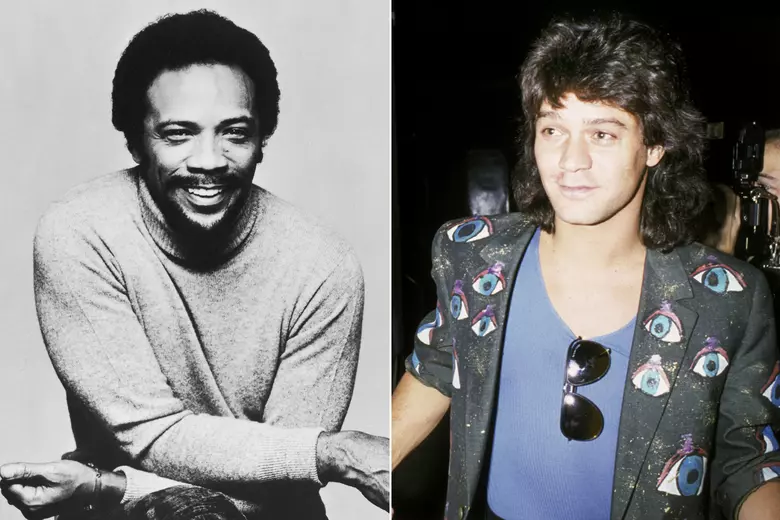Eddie Van Halen Almost Hung Up on Quincy Jones’ Call for ‘Beat It’ Collaboration
Eddie Van Halen, the legendary guitarist, is often celebrated for his electrifying solo on Michael Jackson’s hit “Beat It,” but the story behind that collaboration is as memorable as the solo itself. In a humorous twist, Van Halen nearly missed the chance to make music history because he almost hung up on Quincy Jones, the celebrated music producer behind the Thriller album.

In the early 1980s, Van Halen was the lead guitarist for his namesake rock band, which had reached considerable fame through its own successes. During this time, Thriller was in production, and Quincy Jones wanted a unique rock sound to elevate the track “Beat It.” His first choice for the guitar solo? Eddie Van Halen.
However, when Jones reached out to Van Halen, the guitarist initially thought it was a prank. Van Halen later recounted that he was shocked to hear someone claiming to be Quincy Jones on the line. He assumed it was a joke, thinking, “Why would Quincy Jones be calling me?” Nearly hanging up, Van Halen hesitated just long enough to realize it might be legitimate.
Once convinced of Jones’s identity, Van Halen agreed to contribute to the track and went on to play one of the most iconic guitar solos of all time. He brought his signature virtuosic style and energy to “Beat It,” a combination that complemented Jackson’s pop brilliance and helped the song become a crossover hit. The result was a pivotal moment in music history, merging rock and pop in a way that hadn’t been done before.
In addition to the humor behind the call, Van Halen’s participation was extraordinary for another reason: he did it for free. Van Halen later explained that he didn’t seek payment for his contribution, seeing it instead as a fun collaboration. He reportedly said, “I did it as a favor,” and didn’t even tell his bandmates, Van Halen, about his involvement.
Van Halen’s solo was recorded in a quick session, but his impact on “Beat It” was lasting. He improvised much of the solo on the spot, adding energy, technical skill, and spontaneity to the track. That memorable guitar work helped solidify Thriller as one of the best-selling albums of all time and propelled “Beat It” to number one on the charts.
The collaboration’s success also symbolized a breakthrough in music: a seamless fusion of pop and rock, paving the way for future genre-blending in mainstream music. Van Halen’s decision to stick around for that unexpected call ultimately played a huge part in creating one of pop music’s most enduring songs.



